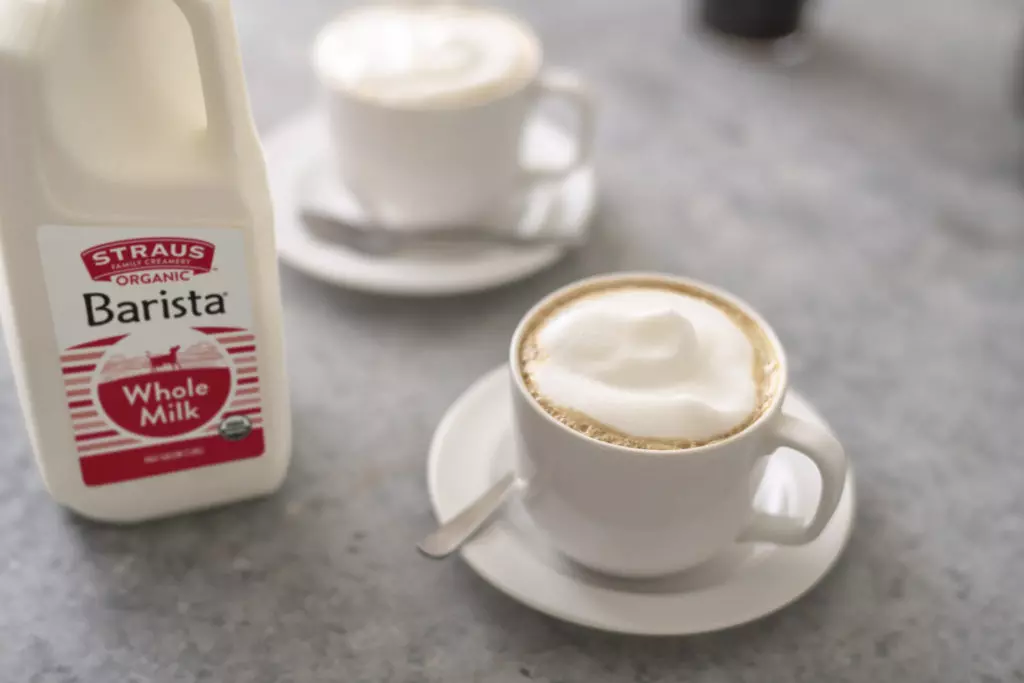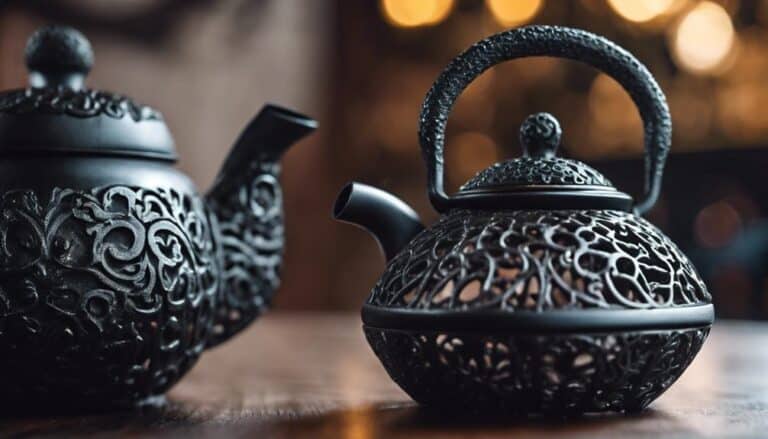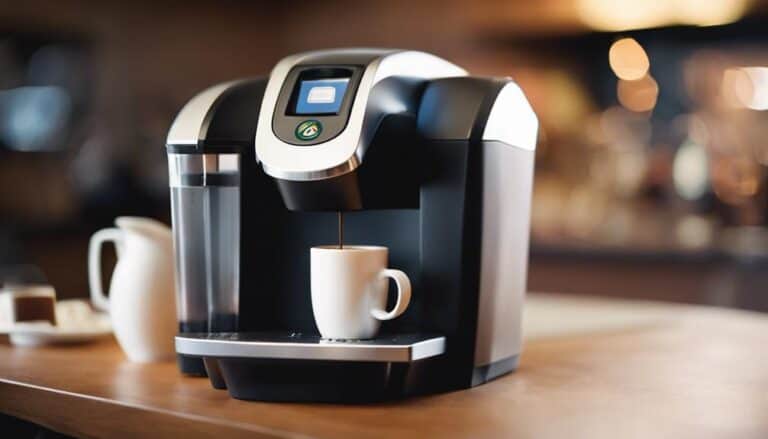Why Is My Coffee Going Hard? Understanding the Science Behind Coffee Staling

Why Is My Coffee Going Hard? Understanding the Science Behind Coffee Staling
Are you tired of brewing your morning coffee only to find that it has gone hard? It’s a frustrating experience that can ruin your perfect cup of coffee. But why does it happen? In this article, we will explore the various factors that can cause coffee to go hard and provide tips on how to prevent and fix it.
Understanding coffee hardening is the first step in preventing it from happening. Coffee hardening occurs when coffee beans or grounds are exposed to moisture and air, causing them to lose their freshness and flavor. This can happen during storage or during the brewing and preparation process. The result is a hardened clump of coffee that is difficult to dissolve and can ruin the taste of your coffee.
The role of storage conditions, brewing and preparation factors, and how to prevent and fix hardened coffee will all be explored in this article. We will also provide answers to frequently asked questions about coffee hardening. By the end of this article, you will have a better understanding of why your coffee is going hard and how to prevent it from happening in the future.
Key Takeaways
- Coffee hardening occurs when coffee beans or grounds are exposed to moisture and air, causing them to lose their freshness and flavor.
- Proper storage conditions and brewing and preparation factors can prevent coffee from going hard.
- If your coffee has gone hard, there are ways to fix it, but sometimes it’s best to discard it and start fresh.
Understanding Coffee Hardening
When we notice our coffee going hard, it can be frustrating and confusing. However, understanding the reasons behind coffee hardening can help us prevent it from happening in the future.
One of the main culprits behind coffee hardening is moisture. When coffee granules are exposed to moisture, they can clump together and form lumps. This can happen if the coffee is not stored properly or if it is exposed to humid conditions. To prevent this, we should store our coffee in an airtight container in a cool, dry place.
Heat is another factor that can cause coffee to harden. When coffee is exposed to heat, the moisture inside the granules can evaporate, leaving behind hardened coffee. This is why it’s important to avoid storing coffee near sources of heat, such as stovetops or ovens. Instead, we should store our coffee in a cool place.
Instant coffee can also be prone to hardening, especially if it is not stored properly. Instant coffee granules are more porous than regular coffee, which means they can absorb moisture more easily. To prevent this, we should store our instant coffee in an airtight container in a cool, dry place.
If we notice that our coffee has already hardened, we can try to soften it by adding hot water. However, this may result in a bitter taste, as the hardened coffee may have lost some of its flavor. To prevent this, we should try to use our coffee as soon as possible after roasting, as fresher coffee will have a more robust flavor.
In summary, coffee hardening can be caused by moisture, heat, and improper storage. To prevent our coffee from going hard, we should store it in an airtight container in a cool, dry place and avoid exposing it to heat. If our coffee has already hardened, we can try to soften it with hot water, but we may lose some of the flavor.

The Role of Storage Conditions
When it comes to coffee storage, the conditions in which you store your coffee can have a significant impact on its quality and longevity. Here, we’ll take a closer look at the different factors that can affect your coffee’s freshness and flavor.
Impact of Humidity
High humidity is one of the biggest enemies of coffee beans. When coffee is exposed to moisture, it can become moldy and stale, which can cause it to harden over time. To prevent this, it’s essential to store your coffee in a cool, dry place. Avoid storing your coffee in areas that are prone to high humidity, such as near the sink or in the fridge.
Effects of Air Exposure
Air exposure is another factor that can cause coffee to harden. When coffee is exposed to air, it can oxidize, which can cause it to lose its flavor and aroma. To prevent this, it’s important to store your coffee in airtight containers. Make sure to discard any coffee that has been exposed to air for an extended period.
Influence of Light
Light exposure can also have a negative impact on your coffee’s quality. When coffee is exposed to light, it can cause it to become stale and lose its flavor. To prevent this, it’s best to store your coffee in a dark place, such as a pantry or cupboard.
Temperature Considerations
Temperature is another critical factor to consider when storing your coffee. Coffee beans should be stored in a cool, dry place, away from heat sources. Avoid storing your coffee on the counter or near the stove, as the heat can cause it to harden and lose its flavor. Some people choose to store their coffee in the freezer, but this can cause moisture to build up, which can affect the flavor of the coffee. If you do choose to store your coffee in the freezer, make sure to use an airtight container and only freeze it once.
In summary, to prevent coffee from hardening, it’s essential to store it in a cool, dry place, away from high humidity, air, and light exposure. Use airtight containers to keep your coffee fresh, and avoid storing it in the fridge or freezer unless necessary. By following these guidelines, you can ensure that your coffee stays fresh and flavorful for as long as possible.
Brewing and Preparation Factors
When it comes to making a great cup of coffee, the brewing and preparation factors are just as important as the quality of the beans. In this section, we will explore the key factors that can impact the quality and consistency of your coffee.
Importance of Water Quality
Water is the primary ingredient in coffee, so it’s essential to use the right quality of water. Using tap water may not always be the best option as it may contain minerals that can affect the flavor and aroma of your coffee. We recommend using filtered water that is free of impurities and minerals for the best results.
Correct Brewing Temperature
The brewing temperature is critical to the flavor and extraction of your coffee. Brewing at too low a temperature can result in under-extraction, while brewing at too high a temperature can lead to over-extraction and a burnt taste. We recommend brewing at a temperature between 195-205°F for optimal extraction and flavor.
Proper Grind Consistency
The grind consistency is crucial to the flavor and aroma of your coffee. The grind setting you use will depend on the brewing method you choose. For example, espresso requires a fine grind, while drip coffee requires a medium grind. It’s essential to use a consistent grind size to ensure even extraction and a balanced flavor.
Ideal Coffee to Water Ratio
The coffee to water ratio is the amount of coffee you use in proportion to the amount of water. Using too little coffee can result in weak, watery coffee, while using too much can lead to a bitter taste. We recommend using a ratio of 1:16, which is one part coffee to 16 parts water, for optimal flavor and strength.
In summary, brewing and preparation factors play a crucial role in the quality and consistency of your coffee. Using filtered water, brewing at the correct temperature, using a consistent grind size, and using the right coffee to water ratio are all key factors to consider. By paying attention to these factors, you can enjoy a delicious, perfectly brewed cup of coffee every time.
Preventing and Fixing Hardened Coffee
Proper Cleaning and Maintenance
To prevent hardened coffee, we must ensure that our coffee machine is properly cleaned and maintained. This includes cleaning the machine regularly to avoid any fungal growth and using fresh coffee grounds. Using stale coffee can cause the coffee to become hard and clumpy.
It is also important to avoid using a wet spoon when measuring out the coffee grounds. This can cause the coffee to absorb moisture, leading to hardening. Instead, we should use a dry spoon or scoop to measure out our coffee.
Using the Right Storage Containers
Storing coffee in a cool, dry place is essential to prevent hardening. Moisture is the enemy of coffee, so we should avoid storing it in a humid environment. Airtight containers are ideal for storing coffee as they prevent air from getting in and causing the coffee to go stale.
We should also avoid using plastic containers as they are hygroscopic and can absorb moisture. Glass or metal containers are better options for storing coffee.
Avoiding Contamination
Contamination can also cause coffee to become hard. We should avoid storing coffee near other foods with strong odors as the coffee can absorb the odors and flavors.
If our coffee does become hard, we can fix it by using lukewarm water to dissolve the clumps. Alternatively, we can add a small amount of coconut oil to the coffee and mix well. This will help to soften the coffee and make it easier to use.
Proper cleaning and maintenance, using the right storage containers, and avoiding contamination are all essential steps to prevent and fix hardened coffee. By following these tips, we can ensure that our coffee stays fresh and delicious for longer. It is also important to keep in mind food safety when handling and storing coffee to avoid any potential health hazards.
Discarding Hardened Coffee
When we encounter hardened coffee, our first instinct might be to try and salvage it. However, it is important to consider whether it is safe to consume. If the coffee has been exposed to moisture or has been sitting for an extended period, it could be a breeding ground for mold.
In such cases, it is best to discard the hardened coffee. Mold can cause health issues, and it is not worth the risk of consuming contaminated coffee. We should also be careful when handling the container that held the hardened coffee. Mold spores can spread easily, so it is important to clean the container thoroughly and wash our hands after coming into contact with it.
If we are unsure whether the coffee is safe to consume, it is better to err on the side of caution and discard it. Consuming contaminated food can cause food poisoning, which can lead to severe illness or even death.
When discarding the hardened coffee, we should make sure to dispose of it properly. We can either compost it or throw it in the trash. If we choose to compost it, we should make sure to do so in a way that does not attract pests or animals.
In conclusion, when we encounter hardened coffee, we should consider whether it is safe to consume. If there is any doubt, it is best to discard it. We should also be careful when handling the container and make sure to dispose of it properly. By taking these precautions, we can ensure that we stay safe and healthy.
Frequently Asked Questions
How can I prevent my instant coffee from hardening?
To prevent your instant coffee from hardening, make sure to store it in an airtight container in a cool, dry place. Avoid exposing it to moisture or humidity, as this can cause it to clump together and harden. Additionally, try to use up your instant coffee within a reasonable amount of time after opening it.
What causes instant coffee to become hard?
Instant coffee can become hard due to exposure to moisture or humidity. When the coffee granules absorb moisture from the air, they can stick together and form clumps. This can make the coffee difficult to dissolve in water and can affect the flavor and texture of the final drink.
Is it safe to use hardened instant coffee?
Hardened instant coffee is generally safe to use, but it may not dissolve as easily in water and may have a different flavor and texture than fresh instant coffee. If the coffee has been exposed to moisture or humidity for a long period of time, it may also have a stale or off flavor.
How can I soften hardened instant coffee?
To soften hardened instant coffee, you can try breaking up the clumps with a spoon or fork. Alternatively, you can grind the coffee in a coffee grinder or food processor to break it down into smaller particles. However, be aware that this may affect the flavor and texture of the coffee.
What is the best way to store instant coffee?
The best way to store instant coffee is in an airtight container in a cool, dry place. Avoid exposing it to moisture or humidity, and try to use it up within a reasonable amount of time after opening it. If you live in a humid climate, you may want to consider storing your instant coffee in the refrigerator to help prevent it from clumping together.
Can instant coffee go bad and become hard?
Instant coffee can go bad over time and may become hard or clumpy as a result. The shelf life of instant coffee can vary depending on the brand and how it is stored, but it is generally recommended to use it within 2 years of the production date. If your instant coffee has a stale or off flavor or has been exposed to moisture or humidity, it may have gone bad and should be discarded.






One Comment